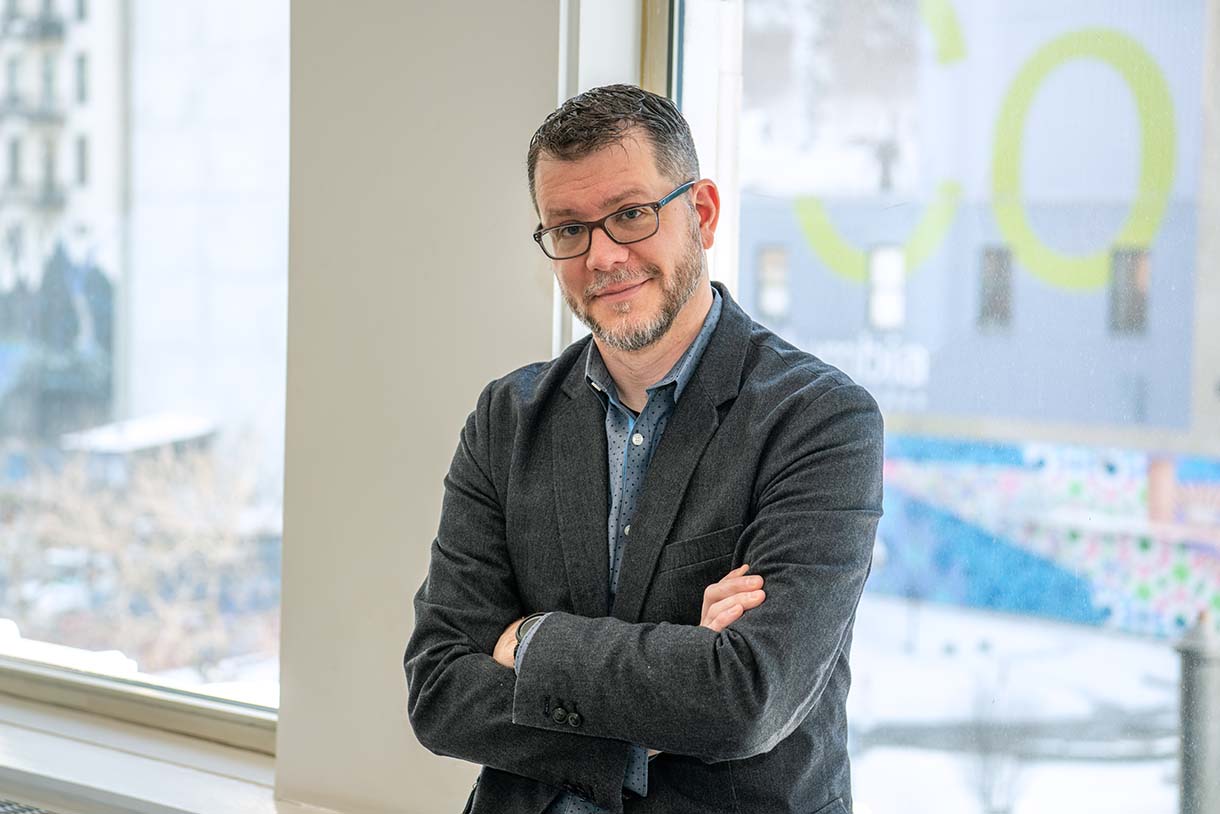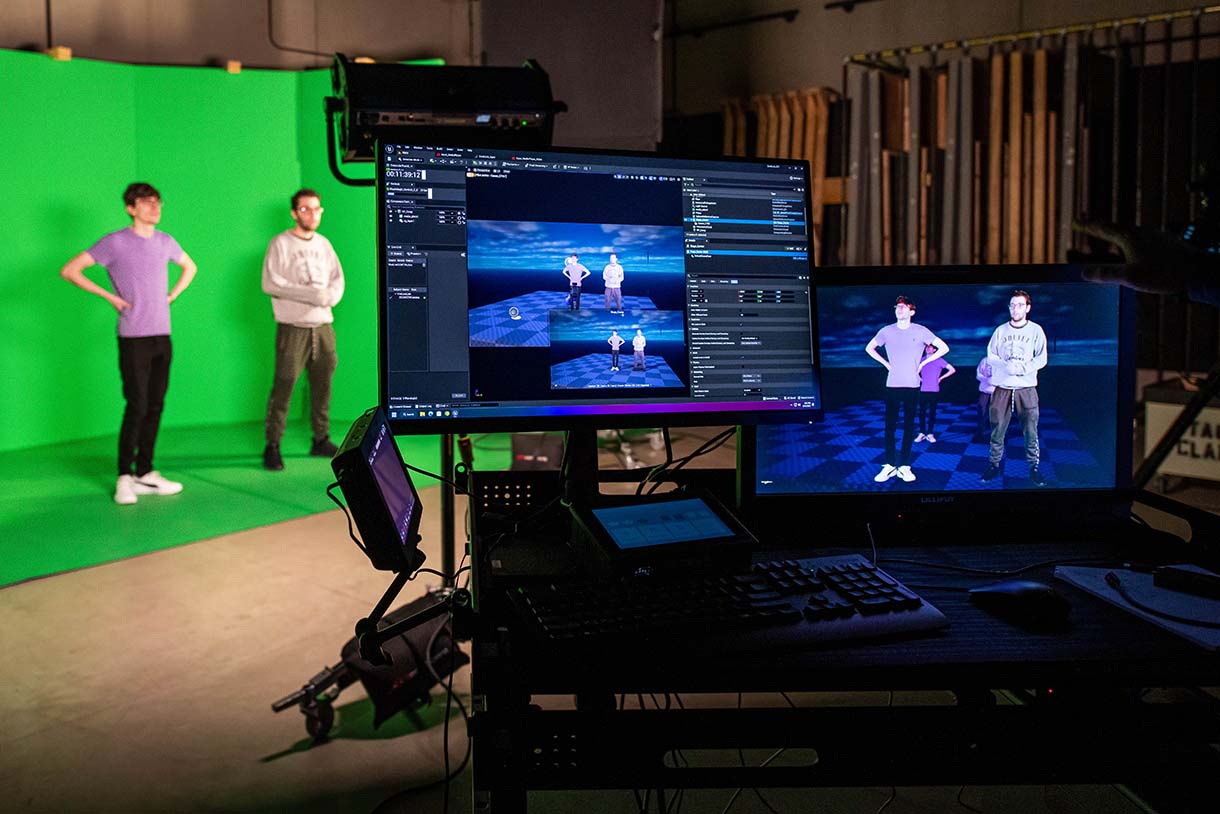New Faculty Member Brings Expertise in Virtual Production to Columbia
What happens when technologies from gaming and film converge and meet up with solid story telling? The Mandalorian and Game of Thrones, of course. Both were produced thanks to virtual production. This real-time technology, borne from the worlds of gaming and film, allows filmmakers to see their visual effects or animation while they film, not weeks later in postproduction. With virtual production, directors and production teams visualized the fantastical worlds of the planet Nog and the Seven Kingdoms on set as actors performed.
Ads, news segments, and music videos are also produced from this confluence. Actors, newscasters, and performers can be placed in any environment, real or imagined, without leaving the set with virtual production. This became especially useful during the COVID-19 pandemic.
Whatever the medium, the skill sets required to work in this new era of media production are in high demand. Career opportunities abound for qualified creatives wanting to work in virtual production, says James Brust, an associate professor at Columbia College Chicago who teaches classes in both Cinema Arts and Television and Interactive Arts and Media.
“These technologies are quickly evolving, and the industry has really latched onto this. So, there’s lot of demand for it right now,” he says.
Filmmakers, animators, game designers, visual effects artists, and immersive media pros can all find roles in virtual production, whether it be at film studios, visual art departments, ad agencies, or local news stations. That’s why Columbia’s School of Media Arts is integrating virtual production into its curriculum. Columbia wants to prepare students for these opportunities, with Brust joining Columbia last fall to help set the stage.
Brust comes to Columbia from Marquette University in Milwaukee where he directed the media lab in the College of Communication and introduced new technologies to faculty and students, often working across departments. He also taught classes on design and digital media. But his greatest accomplishment was expanding virtual production capabilities beyond the campus news set to benefit students in other programs such as film and digital media. He partnered with industry leader Epic, the company behind the Unreal Engine. He helped the school receive an Epic MegaGrant to develop virtual production courses and curriculum. “That was really exciting. We were doing all sorts of fun things, and then I also participated in an Epic fellowship for virtual production,” he recalls.
As an authorized Unreal Engine instructor, Brust was thrilled to learn that Columbia was seeking an instructor with that specific expertise. He especially appreciated how Columbia’s media programs were organized within the larger institution.
“One of the reasons that I came here is that the combination of Interactive Arts and Media and Cinema and Film Arts under the School of Media Arts is the best academic combination for a virtual production program that you could ask for,” he says. “Because those are the key skills.”
Brust, a lover of science fiction and fantasy literature and the art of transforming it into different mediums, fully embraces the ever-changing landscape of media technology and whatever the future holds.
“The way that technology has changed over time is part of what excites me as a creative, because I can constantly do something that I couldn't do before,” he says. “And I just find that endlessly fascinating.”

